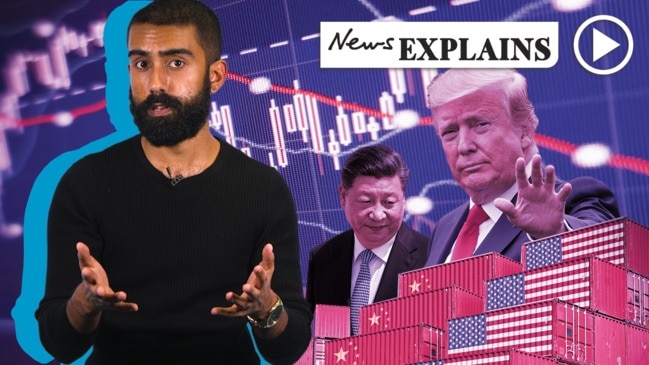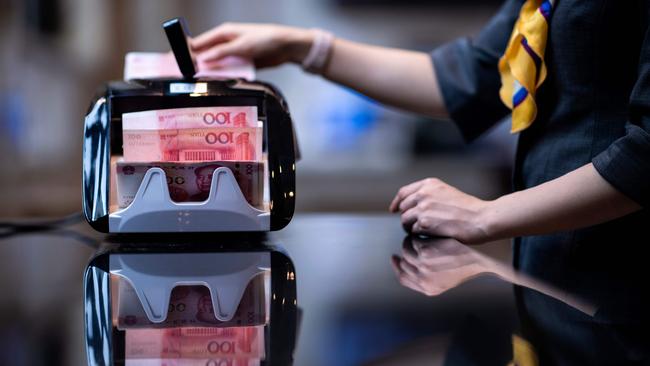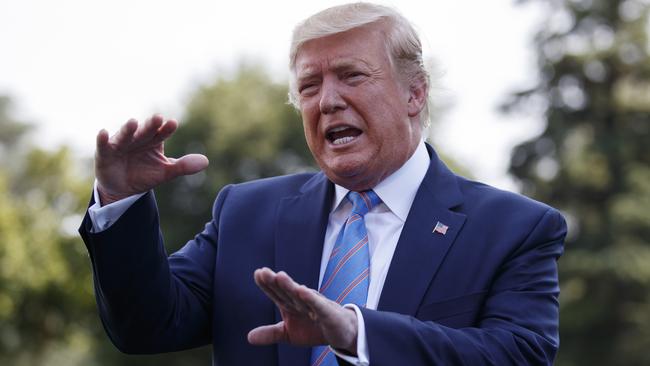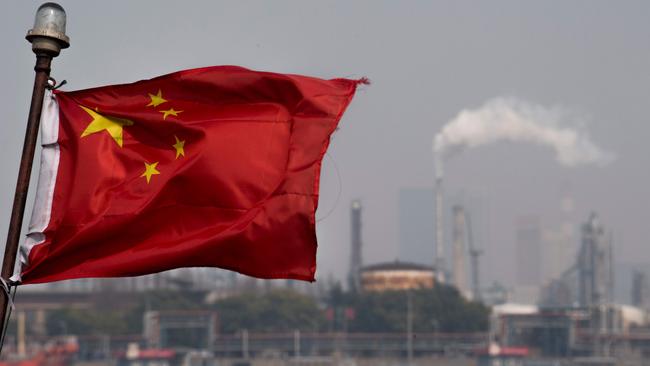ASX suffers worst day of year as Chinese currency drop fuels trade fears
The Australian share market has taken its biggest tumble so far this year, wiping $38 billion from the value of the nation’s biggest companies. Here’s why investors are spooked.

Business
Don't miss out on the headlines from Business. Followed categories will be added to My News.
The Australian share market has suffered its biggest fall so far this year as fears mount that currency is emerging as a major new front in the US-China trade war.
More than $38 billion has wiped from the value of the nation’s biggest companies in rout also fuelled by a series of less-than-spectacular updates on the health of economy and a dip in the outlook for iron ore prices.
Mounting global trade tensions and a mixed bag of domestic economic developments come as the Reserve Bank board meets tomorrow, although most economists predict it will keep interest rates on hold this month.
The nation’s key share market index, the ASX 200, dropped 1.9 per cent today to 6640.3 points. It was the biggest one-day fall since mid December.

The sell-off came less than a week after the market chalked up a record close of 6845.1 points, finally breaking through its previous peak set on the eve of the global financial crisis.
Markets across the globe have been rattled by US President Donald Trump’s move to slap a 10 per cent tariff on the last $US300 billion ($443 billion) a year worth of Chinese goods that have not previously been targeted.
Share traders continued to hit the sell button today after a sharp fall in the value of the yuan relative to the greenback stoked fears China would increasingly use its currency as a leverage in its dispute with the US.
The US dollar has climbed above the seven yuan mark for the first time since 2008.
It effectively means the Chinese currency is weaker, which makes exports from the Asian nation to the US cheaper, offsetting the impact of tariffs.

The value of the yuan is broadly governed by China’s central bank, which sets a daily midpoint and does not let it rise or fall by 2 per cent around this level.
Its decision not to intervene to keep it below the 7-per-dollar level has been viewed by investors as a push-back tactic against the US.
“The (Chinese) currency has shot up (against the US dollar) and it is clearly being tolerated, not necessarily orchestrated, by the Chinese authorities,” National Australia Bank foreign exchange strategy head Ray Attrill told Business Daily.
“The view is that if the trade war is arcing up further then it can’t be a good thing for Chinese growth in the short term and the global economy and that is why it has come back to bite markets here.”
Mr Attrill said the moves in China’s currency would push the Aussie dollar lower, making our exports cheaper but imports more expensive.

The drama in currency markets came as a key index measuring the health of the nation’s services sector, the Australian Industry Group’s performance of services index, clocked in at its weakest level in five years.
Separately, industry figures revealed sales of new cars had dropped again last month, while futures trading in iron ore indicated the price of the key steel making ingredient was on track to drop below the $US100-a-tonne mark.
MORE: TERRY MCCRANN: AUSSIE SHARES MAY BE RUNNING ON BORROWED TIME
CommSec senior economist Ryan Felsman said that while he expected the RBA to sit on its hands today, a flare-up in trade tensions and mixed economic data would weigh on the board.
“Weakness in the Aussie services sector, fading strength in iron ore prices, the re-intensification of global trade tensions, ongoing drought and the impact of policy easing by global central banks will also be front of mind for policymakers in their deliberations,” he said.
john.dagge@news.com.au
